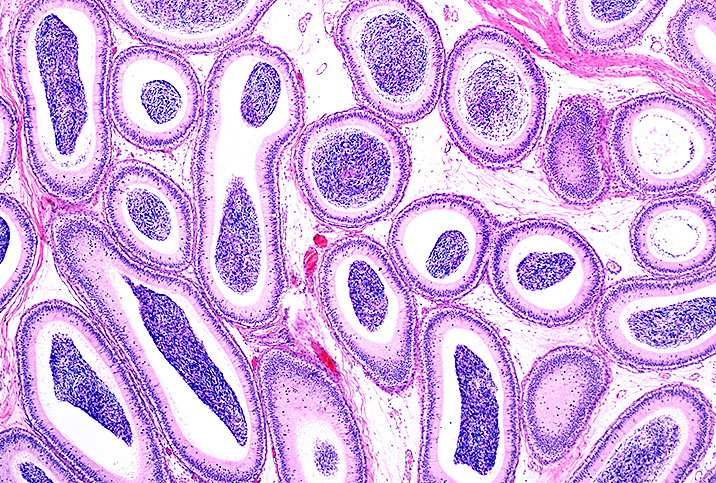12 Natural Ways to Increase Fertility in Men

Infertility is a term best used to classify people who are unable to conceive after a year of unprotected sex. The problem is common, affecting about 15 percent of couples trying to get pregnant.
In one-third of the cases, infertility is attributed to the male in a relationship; the woman is found to be the cause in another one-third; and both partners (or unknown causes) make up the remaining third. One factor is certain, though: Optimizing fertility in men can increase the chance to conceive naturally.
Use one or more of the following 12 suggestions to help increase your fertility:
1. Maintain a healthy weight
Being overweight reduces the chances of conceiving for both men and women. To maintain a desirable weight and increase fertility, eat a healthy diet. Consume plenty of fruits, vegetables, whole grains, protein, dairy foods and heart-healthy fats. Minimize stress and get plenty of sleep and exercise.
2. Avoid heavy drinking
In men, heavy alcohol consumption can decrease sperm motility, total sperm count and testosterone levels. If you can avoid alcohol entirely, do so to optimize fertility. If not, drink in moderation, that is, two or fewer drinks per day. For women, this amount should be no more than one drink per day.
3. Don't smoke
Men who smoke are more likely to have a lower sperm count. In fact, smoking tobacco or marijuana can increase erectile dysfunction and make infertility treatment less effective. To increase fertility, men should avoid cigarettes, chewing tobacco and marijuana. Talk with your doctor if you use marijuana for medical purposes.
4. Exercise regularly
Regular exercise can optimize fertility in several ways. It helps you maintain a healthy weight and improves sperm quality, according to studies. Aim to exercise at least 30 minutes at least five times each week, or a total of 150 minutes. Complete both cardiovascular exercise and resistance training.
5. Stop taking certain medications
Some over-the-counter or prescription medications may decrease fertility. If you and your partner are trying to become pregnant and you take medicines regularly, chat with your doctor to find out if your medication regimen is affecting your fertility.
6. Prevent or treat STDs
Some sexually transmitted diseases (STDs), such as gonorrhea and chlamydia, can lead to infertility in men. To reduce your risk of getting an STD, use a condom correctly during sexual intercourse, abstain from sex, or get regularly tested for STDs so you can get treated as required.
7. Be aware of cancer treatments
If you have cancer and require radiation therapy or chemotherapy, be aware that these treatments can impair sperm production or even cause permanent infertility in men. Ask your doctor about retrieving—and possibly storing for future use—healthy sperm prior to undergoing radiation therapy or chemo.
8. Steer clear of toxins
Watch out for toxin exposure, including lead, pesticides and other toxins that can negatively affect sperm quality and quantity. Have your drinking water tested for contaminants. Wear protective clothing and equipment if you're exposed to industrial or environmental toxins, avoid breathing in toxic fumes, and prevent skin contact with chemicals.
9. Avoid certain lubricants
Studies show that using vaginal lubricants during sexual intercourse can be toxic to sperm and could delay conception. If you use lubricant, choose brands that your doctor says are fertility-friendly.
10. Avoid very hot temperatures
Exposure to very hot temperatures, such as in hot baths, saunas and hot tubs, can temporarily decrease sperm motility and production. Men trying to increase their fertility and optimize sperm quality shouldn't overheat their scrotum. Wearing loose underwear is a good idea to keep your testicles cool.
11. Minimize stress
Chronic stress can diminish your sex drive and decrease testosterone levels, sperm count and overall fertility. Stress can also interfere with sperm-producing hormones. Take a mental day off from work, get more sleep, try massage, and consider yoga, tai chi or meditation to reduce stress.
12. Take dietary supplements
Some dietary supplements that contain antioxidants, vitamins, minerals and herbs claim to optimize fertility; however, to be clear, there is no proven link. Examples include vitamin D, vitamin C, zinc and D-aspartic acid (D-AA). However, check with your doctor before you take any dietary supplements, because most of them are not approved by the Food and Drug Administration (FDA). They may not work as claimed and may even react poorly with other medications you are taking. Be wary of supplements and their claims.
If you and your partner are trying to conceive, the first step should be to increase your fertility naturally. However, if you've altered your lifestyle habits and it hasn't helped increase your fertility, it's time to check in with your doctor, who may prescribe fertility medications or recommend surgery or other fertility procedures.


















